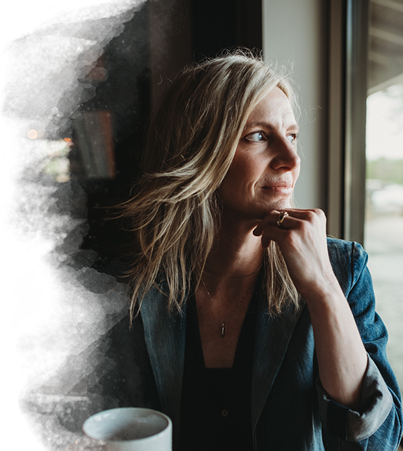Lately, I write poems in the kitchen, waiting for sauces to thicken. I tap out poems on trails by the river while my daughter dances and sings in her rehearsals. I sit up in bed, head full of words that make no sense as prose, but sing into lines of poetry.
I have not always been like this, but something about computers, smartphones, and predictive texts has awoken words that once lay dormant.
I loved poetry in the 1980s when Mrs. Heller read Where the Sidewalk Ends to my third-grade class. The room smelled of white glue and playground dirt; the children wore sweaty brows from playing handball. Gathered in that room together, we emitted a slightly musty odor. I recall cackling there on the reading rug; my legs crossed, hands resting in my lap as we found ourselves in poems about trading quarters for dimes, selling annoying siblings, and the voice in our heads that knew right from wrong.
The words in the poems seemed important (after all, our teacher read them to us!), and because they were about us, they proved we, too, were important.
Sometime in high school, poetry lost my attention. Maybe the boys and the friend drama drowned out the poems, but our English teacher did poetry no favors with what she assigned. The poems we read as teenagers were like an old crush who has lost interest in your thoughts and forgotten to care about what happens to you. In this literature-laden 21st century, YA poetry has flooded the world with books in verse and poems about the things teens love, but we Gen Xers were expected to fall in love with the Illiad, Shakespeare, and haikus about golden leaves. Most of us did not find ourselves in those poems, so we moved on to other interests.
In lieu of poetry, I read all the novels the Brontes, Fitzgerald, and Austen ever wrote and fell in love with the wonder of imaginary worlds. I later picked up Harry Potter, The Hunger Games, and Eragon. I would later read broadly and diversely, opening All the Lights We Cannot See, What Alice Forgot, and The Underground Railroad. In these stories of loss, love, ghosts, and adventure, I found worlds that did what poetry had done when I was young: reassure me that the story of me is a story worth living.
Since I didn’t miss poetry, I assumed I did not need it for many years.
Sometime in my mid-20s, a friend gifted me a small book of poems by Christina Rossetti, and I began a casual relationship with poetry again. A few years later, I purchased a volume of poems by Emily Bronte and found them to be a mixture of excellent and tedious. I learned one day that my great-grandmother wrote poems about kites, mountains, and the Bible stories she loved. My soul sparked when I read Where the Sidewalk Ends to my children, sitting crisscrossed on the floor once again. By my mid-forties, poetry had come to retake its rightful place. Throughout those years, I discovered random poems in strange places: movies, television biographies, Instagram posts, and mystery novels. I gathered them up and clung to them like life preservers, though I did not know why.
Lately, much has been said about artificial intelligence and what it can create in the world. We copywriters, photographers, and nonfiction authors tremble to think of how replaceable our talents might become as computers learn to do our jobs. As my fear grows about how the publishing world might change in the wake of this newly formed reality we face, I have begun to believe that poetry can save us.
My life preservers were stacked and ready for such a time as this.
Perhaps, in some future my children or grandchildren exist in without me, computers will be capable of communicating the intangible fuel of poetry: wonder, awe, spite, humor, grief, and love. But for now, in the reality we have been fortunate to possess as our own, there are islands of creation kept safe from bots for those brave enough to row to them.
Mary Oliver once wrote this in her poem Franz Marc’s Blue Horses, “Maybe the desire to make something beautiful is the piece of God inside each of us.”
What does AI know of desire? Only what the poets have tried to teach it. But desire is not a fact to be known or an expression easily replicated. Desire is a human thrill of longing that can only be hinted at by the voice of one who has either wrestled it into submission or succumbed to it.
The power of human desire makes me wonder if we will find a kind of poetry when we reach inside ourselves for the piece of God within us. Is this the work these computers do in our world, forcing us to find God where we thought we had already looked?
We, too, are important. We, too, bear God’s image. Poetry has come to carry us to places technology can’t.
I am grateful for the ride.


